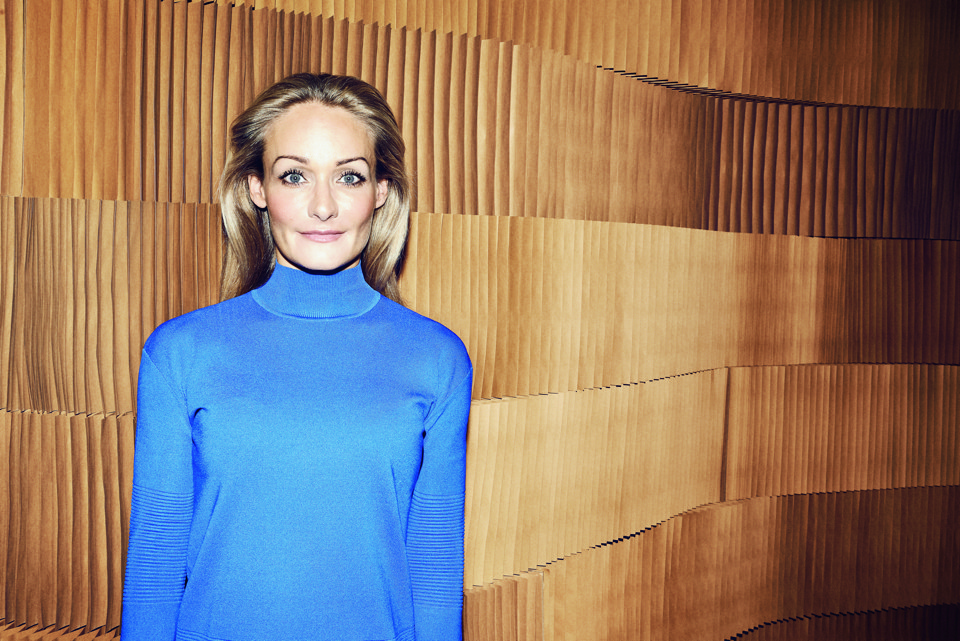COLLAGES
sustainable fashion, for real

eva kruse
A more sustainable fashion future. Most of us say yes to that, without hesitation. We know that the fashion and textile industry is one of the most polluting industries in the world. But then it comes down to action, to change – and some of us lose our way.
It is a Thursday morning in January, snow is falling, but the streets are buzzing with movement in Denmark’s capital as the Copenhagen Fashion Week has just begun. I am at the press conference held by the Copenhagen Fashion Summit.
The Danish designer David Andersen is describing how he works according to zero waste. The discussion continues to talk about circular ways of thinking including new materials, life span, how the ecological footprint of a garment is already decided in the design, recyclability… Since the Danish Minister of Energy and Climate is also attending, we learn that the Minister is wearing a suit made by David Andersen. “And as you can see it looks completely normal”, says the designer. The audience giggles. But that is really the message; sustainable in every possible way is completely normal.
It all started in 2009, Eva Kruse, a Copenhagen Fashion Week pioneer and Danish Fashion Institute initiator took the next step. She is today the spokesperson and the face that many of us now associate with the Copenhagen Fashion Summit network.
NICE, Nordic Initiative Clean & Ethical Fashion, is a joint commitment between the Nordic countries and it is an educational process. The Copenhagen Fashion Summit, the last one held in 2012 and the next one on 24 April 2014 is where we put light and focus on these questions, says Eva Kruse.
How do you see the future, can we do this?
I really believe in this, otherwise I wouldn’t be fighting for it. When we start digging into this the possibilities and solutions are endless, it is about how we can make them accessible to designers and companies.
What about conveying the message to the consumers?
That is the next step. I don’t think we will see consumers jumping up and down wanting organic fashion, they want to buy clothes because it is beautiful or the colour red… It is a push strategy from the companies; it is not going to be a pull. The cooler the brands the better for the cause. Once the companies start doing something sustainable of course they will have to start communicating. Otherwise how will we know if a garment is made of tencel, and who does even know what that is…
Today we think that organic fashion has to be brown, hippie-like and dull – but it doesn’t have to be! You can even have pink, it is not like there is only possible to have a certain organic colour range.
Are the Scandinavian companies a driving force, or is this evolution happening parallel all over the global market in your opinion?
I think the Scandinavian companies can be a driving force. But do I think that Scandinavian companies are more sustainable than others, no. But we can be, I think that it is in our culture to care. Therefore we have met receptiveness in our countries, and we also have a lot of small and medium sized companies that want to do this.
Most companies want to do this, if it was easy! That is why we have tried to make solutions easy and accessible.
Is it really correct to say that it is has to be more expensive, financially, for the companies to do this transition, to become more sustainable?
No, not in the long run. To change your production, to source new material, to look into chemical list and so on requires time and effort and might be a luxury that not everybody has. But that is the short run. In the long run it does not have to affect the cost. And the more it will grow the cheaper it will become. I do not want to kill the industry, we just have to consume more wisely.
Eva Kruse talks about the efforts in progress to form an international organization too.
So it will be an international NICE too?
Everything that we do, the tools that we create we want to share with our colleagues in other countries so that they can share with the industry of theirs. There is no reason we shouldn’t share this, there is no competition. Instead it is the more the merrier.
The next Copenhagen Fashion Summit is held 24 April 2014
www.nordicfashionassociation.com
Interview by Petra Dokken, Creative Editor and Writer based in Sweden, but always in motion. Trends and Travel, Online and Offline.


